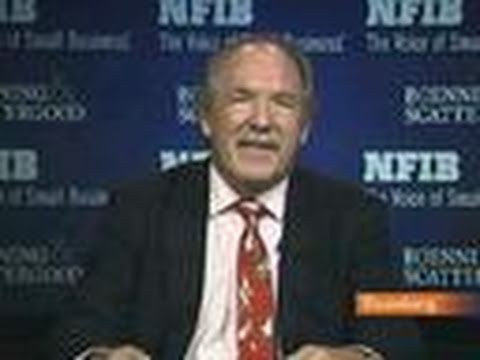Confidence Improves Amid Signs Credit Crisis Easing (Update1)
Post on: 31 Март, 2015 No Comment

By Simon Kennedy — May 14, 2008 09:24 EDT
May 14 (Bloomberg) — Confidence in the global economy improved for the second consecutive month in May on signs the worst of the credit squeeze may be over, a survey of Bloomberg users on five continents showed.
The Bloomberg Professional Global Confidence Index rose to 22.7 from Aprils 14.5, with respondents becoming less pessimistic in every region. A reading below 50 indicates negative sentiment. The measure fell to as low as 13.1 in March.
«Conditions are not quite as jittery in markets as they were, so we may be through the worst, said Ross Walker. an economist at Royal Bank of Scotland Group Plc in London, who took part in the survey.
Participants in the U.S. and Europe reversed their predictions of a dollar decline after the Federal Reserve indicated its ready to pause cutting interest rates. Wall Street chief executive officers including Jamie Dimon of JPMorgan Chase & Co. said in the past month that the credit crunch is easing.
The Bloomberg Professional Confidence Survey collated the responses of 4,574 Bloomberg users from Vatican City to New York on economic conditions in their region and the world. Participants in the poll, conducted from May 5 to May 9, were also asked about the outlook for their currencies, bonds, stocks and interest rates in the next six months.
TED Spread Narrows
Banks and securities firms have posted about $329 billion in asset writedowns and credit losses following the collapse of the market for mortgages aimed at U.S. borrowers with poor credit histories. The crisis roiled financial markets and prompted banks to restrict lending.
There are signs the turmoil is abating. The gap between the yield on three-month Treasury bills and the rate on dollar-denominated loans in London, an indication of credit risk known as the TED spread. narrowed this week to the smallest in at least 12 weeks. The MSCI World Index has gained 11 percent since touching a one-year low on March 17.
The results of the Bloomberg index were echoed by a poll of money managers by Merrill Lynch & Co. Those saying a global recession is «likely in the next 12 months dropped to 29 percent from 40 percent in April, according to the Merrill Lynch survey, which was published today.
Fed Rate Cuts
Investors, analysts and traders in the U.S. were less gloomy than a month ago. The Fed this month pared its key interest rate for the seventh time since September to 2 percent, the lowest since 2004. Fed Chairman Ben S. Bernanke already sought to restore confidence in financial markets by backing JPMorgans takeover of Bear Stearns Cos and pumping additional money into the financial system.
The global index for U.S. respondents rose to 24.8 from 18.5, while that for the country climbed to 15.7 from 10.6.
Those surveyed in the U.S. pared their expectations for further interest-rate cuts from the Fed, with the index almost doubling to 51.3 from 27.7. They were also more upbeat about the outlook for the dollar. The U.S. currency has advanced 3.7 percent from its record low of $1.6019 per euro on April 22.
Citigroup Inc.s Chief Executive Officer Vikram Pandit said April 22 that the credit-market crisis is abating, echoing remarks by Dimon of JPMorgan, who said April 16 that the crisis is more than half over. Richard Fuld. chief of Lehman Brothers Holdings Inc. Goldman Sachs Group Inc. CEO Lloyd Blankfein and Morgan Stanley head John Mack have offered similar assessments.
`Far From Normal
Still, Jim Rogers. co-founder of the Quantum Fund with George Soros. disagrees, saying May 8 in Singapore that «we certainly havent hit the bottom as far as Im concerned. Bernanke said yesterday that while markets have improved, they remain «far from normal.
«The word that the worst is over is spreading around, but from an economic view point, especially in Europe, the worst is still to come, said Aurelio Maccario. co-head of European economics at Unicredit Markets & Investment Banking in Milan, who participated in the survey.

Those surveyed in Western Europe were the most pessimistic, with their index for the global economy at 19.6 after 13.2 in April. Faith in the region edged up to 23.1 from 22. Retail sales in the 15-nation euro area declined the most since at least 1995 in March.
Respondents in Germany, France, Italy and Spain — the largest economies in the euro area — became more concerned about the outlook for the euro after it slipped from its record high versus the dollar.
Asian Confidence
The Asian gauge for confidence in the global economy rose to 21.0 from 11.0, and the index for the region climbed to 37.3 from 33.7. Sentiment among those surveyed in Japan about the worlds second-largest economy rose to 18.7 from 13.9.
Bloomberg users in Spain. where the collapse of a decade-long housing boom is undermining economic growth. were the most pessimistic about their national outlook among all the survey participants. The gauge was at 4.9 in April after 2.1 in the previous month.
Participants in Brazil were the most optimistic about their economy, with the gauge rising to 86.6 from 75.1. Brazil, the worlds largest emerging-market debtor for decades, was raised to investment grade on April 30 by Standard & Poors as growth in Latin Americas biggest economy accelerates and the nation reduces debt.
The next survey will be conducted June 2 to June 6.
To contact the reporter on this story: Simon Kennedy in Paris at skennedy4@bloomberg.net
To contact the editor responsible for this story: Riad Hamade at rhamade@bloomberg.net.














